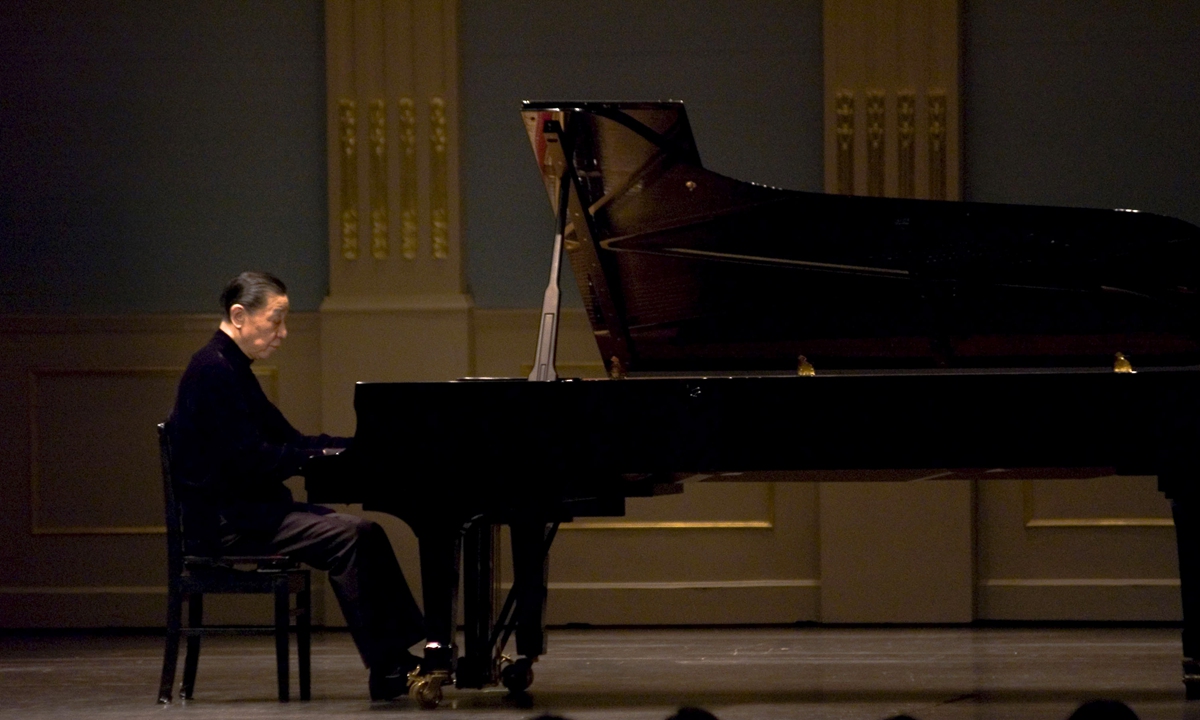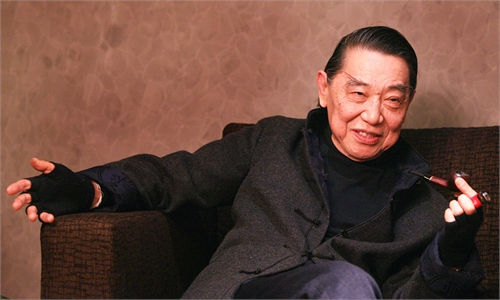UK’s poor handling of COVID-19 responsible for piano master Fou Ts’ong’s death: netizens

Fou Ts'ong Photo: VCG
Chinese social media was filled with posts and candle emojis on Tuesday as netizens mourned legendary Chinese-born pianist Fou Ts'ong, who died on Monday in the UK from COVID-19, with some sadly commenting that he probably would not have died if he had been in China.
Fou, 86, was reportedly diagnosed with COVID-19 on Sunday. On Monday, he was confirmed to have died, with the Austrian Music Channel's Weibo account posting the news on Tuesday.
The hashtag about Fou's death had received more than 710 million views as of Tuesday afternoon. Some Chinese netizens connected Fou's death with the UK's coronavirus response, saying the UK's "poor handling of the epidemic" resulted in deaths, including that of Fou.
"So sorry to hear of his death. If he lived in China, he may not be infected with the disease or die so fast, and he may even be cured," one netizen said, while reposting news of a 90-year-old COVID-19 patient who was cured and discharged from a hospital in Central China's Hubei Province back in February.
"If the UK learned from China to lock down cities at an earlier stage and strictly implement epidemic controls, people like Fou would not die," another netizen commented.
Britain reported 41,385 new COVID-19 cases on Monday, a daily record, as a rapidly spreading variant of the coronavirus increased infection rates, Reuters reported.
Fou was born in Shanghai on March 10, 1934. He was one of the first Chinese pianists who achieved international fame. Since settling in London in 1958, he has performed throughout the world, earning the title of "Piano Poet."
He was later appointed an adjunct professor in the piano department of the Beijing Central Conservatory of Music, and he frequently visited China for lectures and performances in the past decades.
Meanwhile, Fou's early years triggered discussion on Chinese social media. Some netizens blamed him for becoming a British citizen, and some said his choice back then, which should be viewed in the context of history, was understandable.
"Fou Ts'ong had a special history, but after all, it has been passed down for more than half a century. What he left are valuable works of music, and this is something we should really respect," Zhang Yiwu, a professor from Peking University, told the Global Times on Tuesday.





